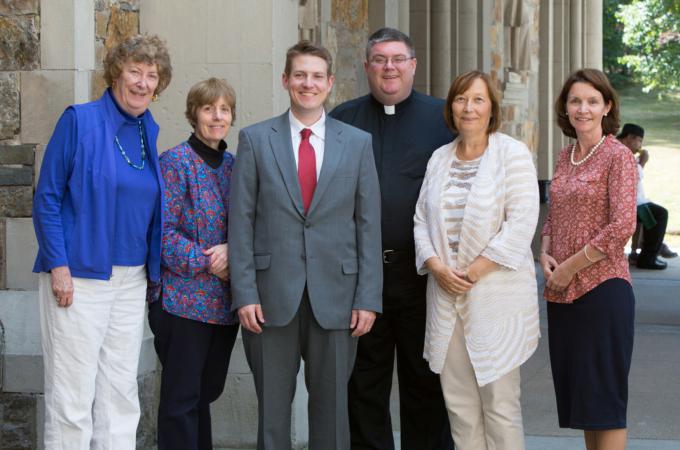We need an educated laity
As U.S. bishops grapple with how to move forward with best practices, they have often referred to the importance of the role of the laity. They affirm that a Catholic laity well-educated in the faith and willing to share their professional experience is crucial to strengthening the Church. The final paragraph of the 2005 U.S. bishops' document, "Co-Workers in the Vineyard of the Lord," states: "We are blessed indeed to have such gifted and generous co-workers in the vineyard of the Lord to which we have all been called."
The Theological Institute for the New Evangelization at St. John's Seminary was established specifically to educate the laity, religious and deacons in the faith. Most of the over 220 graduates are serving in the Boston Archdiocese or their home dioceses in various positions open to laity. The two-degree programs, Master of Arts in Ministry and Master of Theological Studies, offer classes in the evenings and weekends in order to be accessible to non-traditional students who bring their rich backgrounds and experience to their church communities. A monthly Saturday Catechetical Certificate Program is also offered.
"This course has changed me. I am a different person because of what I am learning." A lay student at the Theological Institute spoke these words with amazement in his voice as he left his Pastoral Theology class. He is not the only one who has reflected on transformative learning experienced at the Theological Institute.
Another student who had years of experience in Catholic education and parish ministry shared the following in an e-mail, "It has only been since joining the Theological Institute and now through the formation program that I am beginning to feel spiritually alive as never before." Though he had found tremendous success in his ministry, he felt that his spiritual life had lacked depth. "I very much look forward to the opportunity to work with a spiritual director to explore and deepen my faith life both for my own benefit and, more importantly, so I can be of more meaningful service to others in their faith journey." With great delight this student is expressing a transformation, a deepening of his spiritual life.
At the Theological Institute, learning is not simply an intellectual endeavor. Four areas of formation are addressed: academic, spiritual, human and apostolic or pastoral. Each is not a separate sphere, rather an integrative process. For instance, Scripture is taught with the goal of engaging the text. The students are taught not to read their own interpretations into the text but allow the text to speak truth. When the text is understood, the student can ask what the text reveals about God. From the standpoint of faith, the Word of God can then be actualized and brought into the present moment. It can then be shared with joy.
Students in the two-degree programs, Master of Arts in Ministry and Master of Theological Studies, as well as in the Catechetical Certificate Program, are taking courses to deepen their knowledge of their faith and to improve the ways that they can serve in their parishes or live out their faith in whatever profession they have chosen. There is great joy and delight when a person is involved in transformative learning and it spills over into a person's daily activities. Learning then becomes a graced experience and a great gift to the Church.
DR. ALDONA LINGERTAT, PH.D. IS PROFESSOR OF RELIGIOUS EDUCATION, DIRECTOR OF THE MASTER OF ARTS IN MINISTRY PROGRAM, AND VICE PRESIDENT OF ADMINISTRATION FOR THE THEOLOGICAL INSTITUTE OF ST. JOHN'S SEMINARY.



















